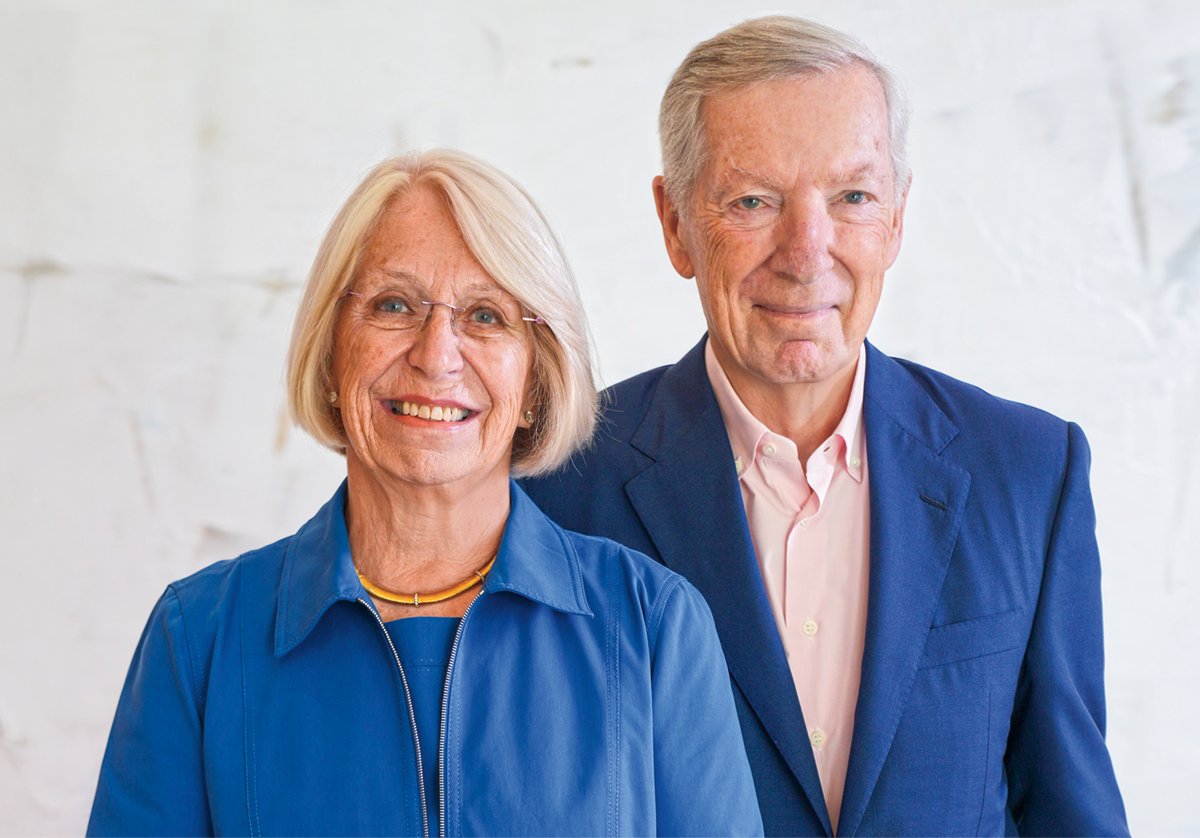
A generous gift from Board of Fellows member Michael Masin and his wife, Joanne, is advancing high-quality cancer research at the Sandra and Edward Meyer Cancer Center.
With a $1 million gift to establish the Masin Family Award for Collaborative Research in Cancer, the Masins are supporting teams of young investigators who collaborate on early-stage projects aimed at discovering new ways in which cancer is diagnosed and treated.
The couple’s five-year commitment provides for two $100,000 awards to be granted annually to two teams of scientists.
Administered by the Meyer Cancer Center under the direction of Dr. Jedd Wolchok, the Masin Family Award is part of the cancer center’s Collaborative Research Initiative (CRI), which provides internal funding – in the form of CRI Investigator Awards – for interdisciplinary teams of researchers whose work has the potential to advance the standard of care for cancer patients.
The Masins, who are longtime supporters of Weill Cornell Medicine, have directed much of their philanthropy toward cancer research ever since Mrs. Masin was diagnosed with breast cancer 20 years ago. Mr. Masin has been a member of the Board of Fellows since 2000.
The couple established the Masin Family Award in honor of two of Mrs. Masin’s physicians at Weill Cornell Medicine: Dr. Nasser Altorki, the David B. Skinner Professor of Thoracic Surgery and a professor of cardiothoracic surgery, and Dr. Jonathan Knisely, who was recruited as a professor of radiation oncology.
For the Masins, an investment in cancer research represents an important first step in developing the protocols and treatments that can make a profound difference in the lives of patients diagnosed with cancer. They are particularly excited about partnering with teams of scientists who are working together in early-stage research, and are providing the financial support they need to gain traction with projects that have the potential to change the landscape of cancer care.
The goal of the CRI is to generate sufficient preliminary data that will support investigators’ hypotheses and lead to extramural government grants – including funding from the National Institutes of Health – that will continue to bolster their research.
“This meaningful gift from the Masins provides our scientists with the funding they need to make the types of discoveries that might otherwise get stalled in the lab,’’ says Dr. Wolchok, the Meyer Director of the Meyer Cancer Center. “We are profoundly grateful for their thoughtful philanthropy.”
Recently, the Masins met with a team of researchers whose work their gift supports – and came away with a renewed sense of appreciation for the transformative research underway at the Meyer Cancer Center.
“It’s a thrill and an honor to work with people who are so enthusiastic and so committed to the research,’’ says Mrs. Masin.
“We’ve had friends who have had cancer and sadly not survived, but we’ve also had a number of friends and family – including Joanne – for whom the treatments were lifesaving,” says Mr. Masin. “One gets the sense that the improvements in cancer treatments from research have accelerated at an increasingly fast pace over the last 10 years or so. And it seems that researchers will make even greater strides in the next decade.”
Led by Dr. John Blenis, the Anna-Maria and Stephen Kellen Professor in Cancer Research and a professor of pharmacology, the CRI has invested about $2.9 million in early-stage cancer projects since it was established in 2016. Projects funded by the CRI have included those that study breast cancer, leukemia, pancreatic cancer, gastric cancer, lung cancer and immunotherapy.
“Our hope is that continued research leads to less invasive and more nuanced, individually tailored treatments for a variety of cancers,’’ says Mrs. Masin.
